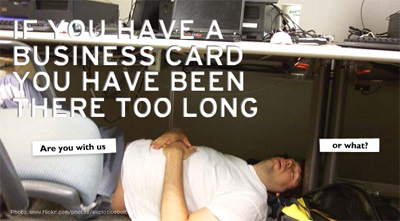It seems to be social network week here at TechnoLlama.
There have been some interesting developments in the ongoing case ConnectU v Facebook (not to be confused with Facebook v ConnectU). ConnectU is yet another social networking site from three Harvard graduates, brothers Cameron and Tyler Winklevoss, and Divya Narendra. The plaintiffs are suing Facebook founder Mark Zuckerberg for, amongst other things, copyright infringement, breach of contract, and misappropriation of trade secrets. In their original complaint, the plaintiffs argue that in January 2004 they hired Zuckerberg to write some code for their social networking site, which had the novel idea to connect Harvard college students to one another, with the initial name Harvard Connections ... sounds familiar, right? ConnectU founders claim that they gave Zuckerberg unlimited access to their business model and ideas, while stressing the need to have as early launch as possible, as there was a narrow market gap.
While allegedly working on the code, Zuckerberg had also been working on Facebook. A company was formed in April 2004 and the actual site launched 3 months before ConnectU. The rest is history as they say. Only one fact appears to be clear, Zuckerberg did not contribute code to ConnectU. However, this is where the facts become blurred, ConnectU claim that Zuckerberg took code from ConnectU and used it on Facebook. The problem here is one of knowing who to believe, as there appears to be little or no documentary evidence on the murky early days of ConnectU. The judge will then have to decide based on some unreliable testimony. And now, the judge has ruled that he's had enough with the dodgy contract claims by ConnectU.
There are some straightforward legal questions here:
- Was Zuckerberg under a contract? Unlikely.
- Was there a non-disclosure agreement? Unlikely again.
- Is there copyright protection over the social networking idea? No, at best there could be a business method claim, if ConnectU had bothered to file a patent application.
- If it is proven that Zuckerberg took some code from ConnectU, would there be a copyright infringement case? Possibly yes, depends on how much code was copied.
Interesting case, and I think that there is something dodgy going on here. The legal case against Facebook may be weak, but there seems to be something morally wrong in Zuckerberg's alleged actions.
Update: For the people in
this Facebook group, no they are not shutting down Facebook. Even if Zuckerberg lost (which I find extremely unlikely), the worst that may happen is that Facebook will have to pay some large amount of money to ConnectU.
2nd Update: Reading the relief request again, the plaintiffs request an injunction not to allow the defendants to operate facebook.com. Even if the judge granted the injunction, (again, highly unlikely), Facebook could still operate, just not by its current operators.
3rd update: Those interested in following the case
can do so here. At the moment the judge has reserved ruling on all the motions to dismiss, which does not bode well for the plaintiffs. Were I a betting man, I would say that this case has only two weeks left.
4th update: ConnectU has just filed (August 8) an amended complaint and offered more evidence.


 del.icio.us
del.icio.us











